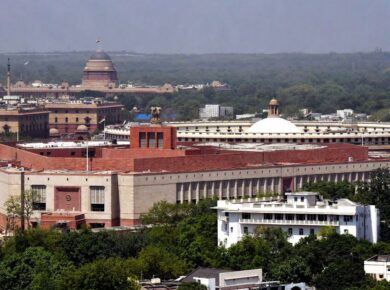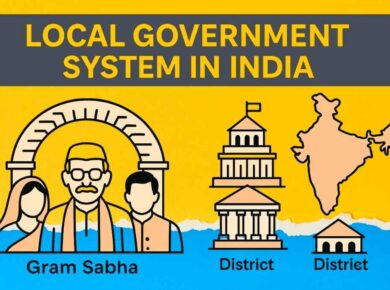Commonly Used Terms in Parliament
“Glossary to find out definitions for words and phrases commonly used in the Parliament.”
| Re – Election | Takes place due to rigging, booth capturing, countermanding or employing any other unfair means during elections |
| Bye Election | When seat is rendered vacant (Due to death, resignation or any other subsequent disqualification of member originally elected) |
| Midterm election | If LS or state assembly is dissolved well before the expiry of its full term then the elections are held to constitute new house |
| Leader of Opposition | Leader of largest opposition party in LS having at least 1/10th of the strength of the house |
| Lame Duck Session | Refers to last session of old parliament, held after a new LS has been elected as a result of general elections. Lame ducks under it are those members who were part of old house but could not get re-elected for the new house |
Advertisement: World’s fastest hosting – secure, reliable, limited-time offer! Click now!
| Filibuster | Parliamentary device of long-winded speeches, not necessarily relevant to delay a matter under consideration for voting (Not practised in India) |
| Snap Vote | Refers to a vote taken unexpectedly without voters being briefed or informed about it in advance |
| Gerry Mandering | Reorganisation of electoral districts by political party in power in attempt to gain advantage in upcoming elections |
| Hung Parliament | After a general election, when no political party or combination of parties is in position to form a government by majority |
| Guillotine | When due to lack of time, demand of grants are put to vote whether they are discussed or not in the house on last working day of allotted time |
| Quorum | Minimum required number of members present to validly transacts the business of the house (1/10th of total members of the house including presiding officer) |
| Point of order | A process, which when raised has effect of suspending the proceedings before the house & member who is on his legs gives away |
Breach of privileges & contempt of parliament
- When any individual or authority disregards any of the privileges & immunities, either of the member or of the house, the offence is called breach of privileges.
- Any act which impedes either the house or performance of official function of the house or of any of its member, is called contempt of parliament
Delegated / Subordinate legislation
- MPs / MLAs make laws only in broad skeletal form, Executives fill up the minor details
- When legislatures outsource the law-making work to the executives, then it is known as delegated / subordinate legislation
- Committee on subordinate legislation examine the rules & regulations made by the executives & submit its report to the house
- Hence parliament continues to keep its control over delegation
If you’re passionate about building a successful blogging website, check out this helpful guide at Coding Tag – How to Start a Successful Blog. It offers practical steps and expert tips to kickstart your blogging journey!
For dedicated UPSC exam preparation, we highly recommend visiting www.iasmania.com. It offers well-structured resources, current affairs, and subject-wise notes tailored specifically for aspirants. Start your journey today!






